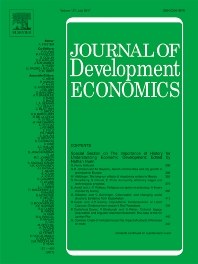
van der Ploeg, F. and Venables, A. (2013). Absorbing a windfall of foreign exchange: Dutch disease dynamics Journal of Development Economics, 103:229--243.
-
Affiliated author
-
Publication year2013
-
JournalJournal of Development Economics
The permanent income rule is seldom the optimal response to a windfall of foreign exchange, such as that from a resource discovery. Absorptive capacity constraints require domestic investment, and investment in structures requires non-traded inputs the supply of which is constrained by the initial capital stock. This, particularly when combined with intra-sectoral capital immobility, delays adjustment and creates short run 'Dutch disease' symptoms as the real exchange rate sharply appreciates and overshoots its long run value. Optimal revenue management requires investing in the domestic non-traded goods sector and a slow build up of consumption. Accumulation of foreign assets adjusts to accommodate the time-paths of domestic consumption and investment. © 2013 Elsevier B.V.